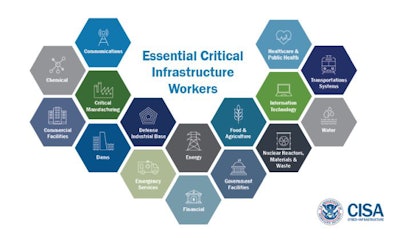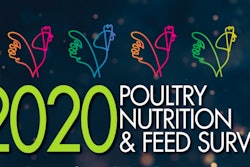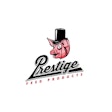
Guidance document says food and agriculture workers should maintain normal work schedule
The U.S. Department of Homeland Security (DHS) has issued guidance that includes the food and agriculture industries in its “essential critical infrastructure workforce” that should continue operations during the new coronavirus (COVID-19) pandemic.
“If you work in a critical infrastructure industry, as defined by the Department of Homeland Security, such as health care services and pharmaceutical and food supply, you have a special responsibility to maintain your normal work schedule,” DHS’ Cybersecurity and Infrastructure Security Agency (CISA) said in its guidance document, issued March 19.
DHS has created a list of “essential critical infrastructure workers” that is meant to inform state and local officials in determining the sectors “that should continue normal operations, appropriately modified to account for Centers for Disease Control (CDC) workforce and customer protection guidance.”
The list “identifies workers who conduct a range of operations and services that are essential to continued critical infrastructure viability, including staffing operations centers, maintaining and repairing critical infrastructure, operating call centers, working construction, and performing management functions, among others,” DHS said. “The industries they support represent, but are not necessarily limited to, medical and health care, telecommunications, information technology systems, defense, food and agriculture, transportation and logistics, energy, water and wastewater, law enforcement and public works.”
DHS noted that its advisory list is “not intended to be the authoritative or exhaustive list of critical infrastructure sectors and functions that should continue during the COVID-19 response,” but that state and local officials should use their own judgment in issuing directives.
‘Essential’ workers
According to the document, among the workers identified as “essential” include:
- Food manufacturer employees and their supplier employees—to include those employed in food processing (packers, meat processing, cheese plants, milk plants, produce, etc.) facilities; livestock, poultry, seafood slaughter facilities; pet and animal feed processing facilities; human food facilities producing by-products for animal food; beverage production facilities; and the production of food packaging
- Farm workers to include those employed in animal food, feed, and ingredient production, packaging, and distribution; manufacturing, packaging, and distribution of veterinary drugs; truck delivery and transport; farm and fishery labor needed to produce our food supply domestically
- Farm workers and support service workers to include those who field crops; commodity inspection; fuel ethanol facilities; storage facilities; and other agricultural inputs
- Employees and firms supporting food, feed, and beverage distribution, including warehouse workers, vendor-managed inventory controllers and blockchain managers
- Workers supporting the sanitation of all food manufacturing processes and operations from wholesale to retail
- Employees of companies engaged in the production of chemicals, medicines, vaccines, and other substances used by the food and agriculture industry, including pesticides, herbicides, fertilizers, minerals, enrichments, and other agricultural production aids
- Animal agriculture workers to include those employed in veterinary health; manufacturing and distribution of animal medical materials, animal vaccines, animal drugs, feed ingredients, feed, and bedding, etc.; transportation of live animals, animal medical materials; transportation of deceased animals for disposal; raising of animals for food; animal production operations; slaughter and packing plants and associated regulatory and government workforce
 Courtesy U.S. Department of Homeland Security
Courtesy U.S. Department of Homeland SecurityIndustry response
The National Pork Producers Council (NPPC) welcomed the guidance, saying it acknowledges “the vital role that pork producers play in helping to feed consumers here at home and around the globe with a high-quality, affordable protein.
“We recognize that states and local governments are working hard to ensure operational continuity,” NPPC said in a statement. “As part of that effort, we urge state and local governments to swiftly follow and implement this federal directive. We need to ensure there is a continuous and uninterrupted supply of pork to America’s kitchen tables.”
However, the American Feed Industry Association (AFIA) voiced concerns over the guidance, saying it leave some “gray areas.”
“DHS’s Critical Infrastructure Policy does not pre-empt states from determining which businesses they deem ‘essential’ versus ‘non-essential,’ but it does serve as a helpful guide for officials, allowing them to take it and use it in their response plans,” said Leah Wilkinson, AFIA’s vice president of public policy and education. “While the policy specifically mentions ‘pet and animal feed processing facilities’ and ‘human food facilities producing by-products for animal food,’ which exempts animal food manufacturers from being shut down, there are still some gray areas. For example, it does not specifically call out ‘animal food’ with retailers selling ‘food and beverage products’ and it does not specifically mention pet food specialty stores, of which some of the merchandise sold is pet food. AFIA continues to work with federal officials to seek clarity on these issues and with states to implore them to keep businesses open that provide vital feed and pet food to the country’s livestock, poultry and pets.”
This week, AFIA, along with 23 state and regional feed and grain associations sent a letter to America’s governors, lieutenant governors and staff to urge them to allow businesses in the animal feed and pet food supply chain to remain open amid the COVID-19 response efforts.















